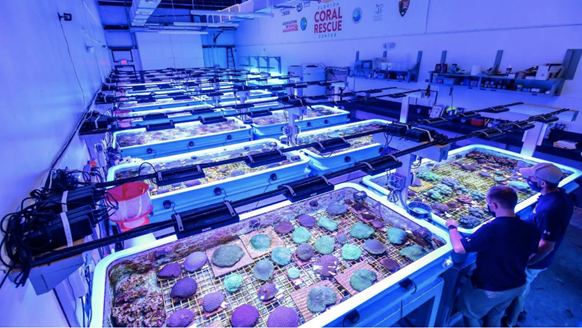
Congrats to Krishna Sharma (CAS ‘17) who published a recent story in the Miami Herald on Florida’s reefs. Krishna is an alum of the Biology Department and the Marine Program at BU.
In 2014, Stony Coral Tissue Loss Disease caused one of the worst marine epidemics ever witnessed; in particular, the Southern Florida coral reefs have taken a hit. This disease has produced an unprecedented national research and rescue effort, in which 2,000 corals have been removed from Florida’s waters and isolated in aquariums around the nation. The Association of Zoos and Aquariums (AZA), a non-profit organization serving aquariums throughout the country, has rallied a network of over 20 sites to muster efforts for coral reef preservation.
A unique partnership between Disney, SeaWorld, and AZA to save Florida’s devastated reefs had led to the purchase of a large coral storage facility which had later become the Florida Rescue Center (FCRC). Universities such as the University of South Florida, University of Miami, and Nova Southeastern have produced disease-fighting bacteria as a probiotic line of disease. Scientists referred to Florida’s Newfound Harbor for resilient coral genes in attempts to breed a new generation. At this harbor, corals have been planted and screened for climate change resilient traits since 2015. This stock of coral has even survived multiple harsh events such as a bleaching event, a category four hurricane, and resilience against the stony coral disease.
Our own Dr. Les Kaufman stated for the article, “Sometimes this is mistakenly thought of as re-engineering a reef, but that is rarely the case.”
The heat and disease-resistant corals are not genetically modified like GMO crops but selectively bred for favorable phenotypes.
For further information, you can read Krishna’s full article here.